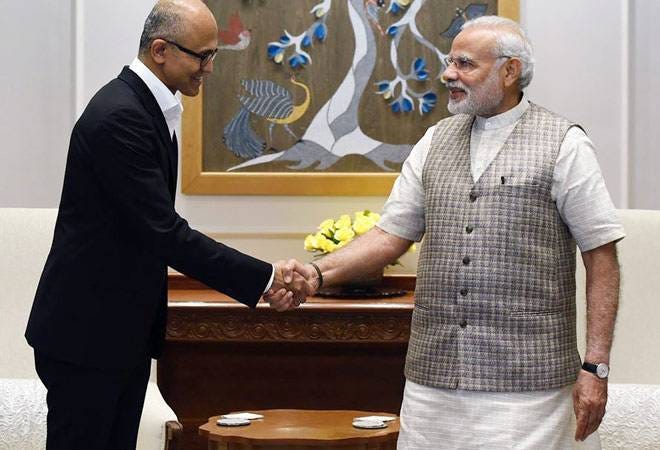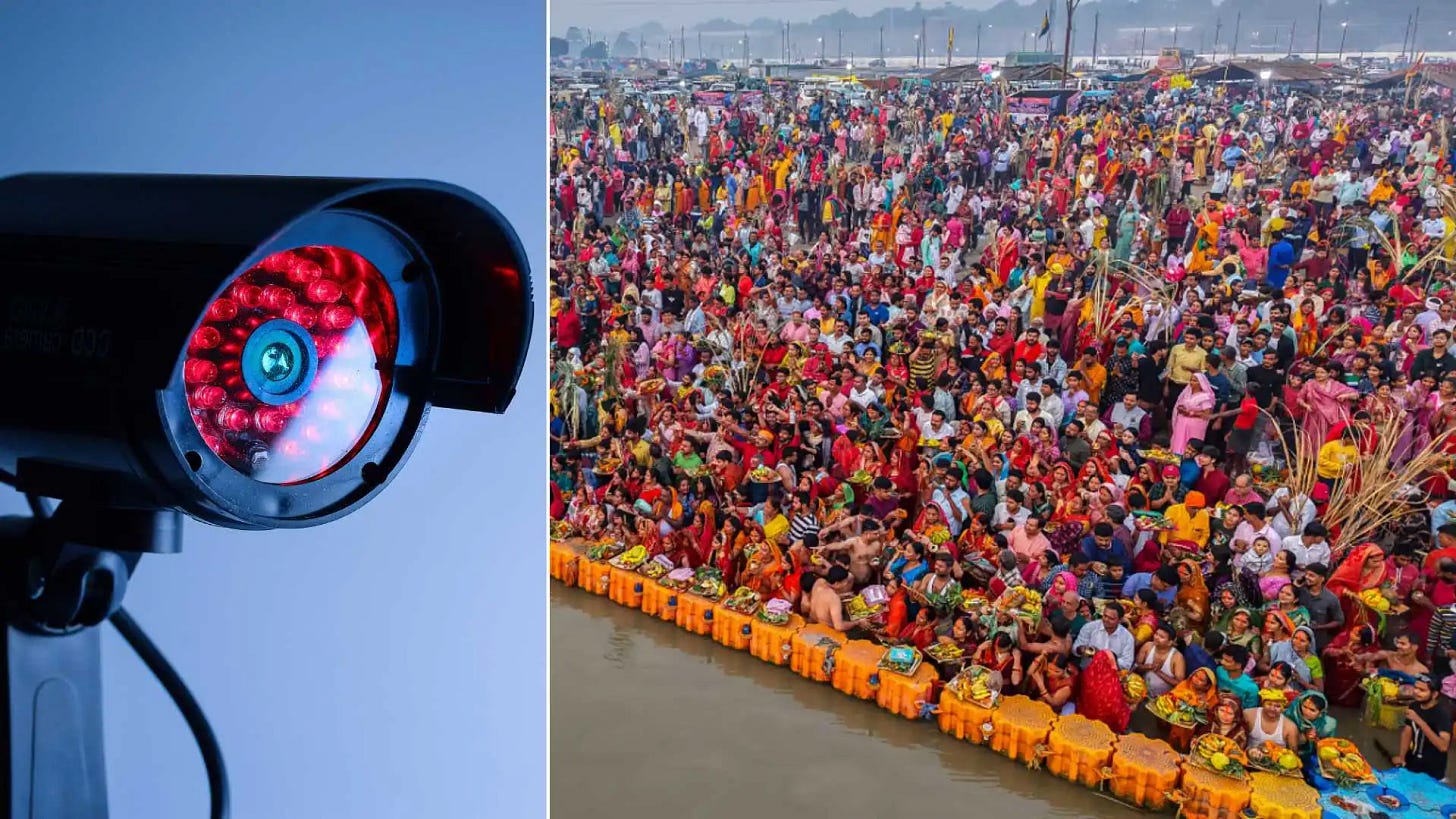In this edition of the AI4India Weekly, we spotlight India's pivotal steps toward securing its digital future, including the unveiling of the Draft Digital Personal Data Protection Rules, 2025. These rules, designed to protect citizens’ digital identities while promoting innovation, set the stage for a more transparent and inclusive data ecosystem. In parallel, we explore initiatives in AI governance, the integration of AI in urban mobility, and emerging partnerships that are shaping the country’s AI-driven growth. As India continues to innovate and lead in digital and AI advancements, this issue highlights the intersection of policy, technology, and societal impact that is paving the way for a secure and prosperous digital future.
Securing India's Digital Future: The Draft Data Protection Rules, 2025
India’s Ministry of Electronics and Information Technology (MeitY) has unveiled the Draft Digital Personal Data Protection (DPDP) Rules, 2025, marking a crucial step toward strengthening the nation’s digital ecosystem. These rules aim to operationalize the Digital Personal Data Protection Act, 2023, emphasizing transparency, simplicity, and accessibility. Key provisions include empowering individuals with rights such as data erasure and appointing digital nominees while ensuring compliance through the use of Indian languages to make the framework user-friendly. To ensure inclusivity, the framework mandates consent notices in all 22 Indian languages listed in the Constitution. Union Minister Ashwini Vaishnaw emphasized, “The draft rules aim to protect every citizen’s digital identity while simplifying processes for better adoption.”
A significant highlight is the focus on protecting minors in the digital realm. The rules mandate verifiable parental consent for processing children’s data and implement safeguards to shield them from unauthorized profiling and exploitation. By prioritizing the safety of vulnerable groups, the framework reflects India’s commitment to an inclusive and secure digital environment. Speaking on the government's broader vision, Vaishnaw stated, “Our focus is to balance robust regulation with innovation, ensuring startups and small businesses continue to thrive while maintaining high data protection standards.”
Balancing robust data protection with economic growth, the DPDP Rules strive to ensure that innovation is not hindered, especially for startups and small businesses. The draft invites public consultation until February 18, 2025, encouraging feedback from all stakeholders to refine this transformative framework. These rules position India as a global leader in crafting a forward-looking data governance model that safeguards privacy while fostering innovation.
Read the official press release here.
Transforming Society Through AI: CPRG Fellowship Announcement
The Centre for Policy Research and Governance (CPRG) has announced the 'Transforming Society through AI' Fellowship, a six-month hybrid program designed to explore the transformative impact of AI on India’s socio-economic landscape. This fully funded initiative, running from April to September 2025, provides a platform for young professionals and researchers to delve into the intersection of AI, public policy, and social development. Participants will engage in rigorous research and analysis, producing fortnightly publications on AI's influence across various sectors and culminating in a comprehensive capstone project that envisions future applications of AI in addressing societal challenges.
The fellowship offers access to mentorship from leading experts in AI, public policy, and social sciences, along with opportunities to participate in CPRG’s tech policy dialogues and conclaves. With a commitment of 25-35 hours per week, fellows will also receive training through expert-led sessions on AI and technology policy. Open to individuals aged 21-35 with diverse academic and professional backgrounds, the fellowship aims to foster a new generation of thought leaders equipped to leverage AI for social transformation. Applications are open until January 20, 2025, and interested candidates can find more details here.
Advancing Responsible AI: New AI Governance Guidelines in Development
India is taking a proactive step toward responsible AI development with the release of a report outlining the framework for AI governance guidelines. Published by IndiaAI, the report delves into the ethical, legal, and technical considerations necessary to shape AI's future in the country. It focuses on fostering transparency, accountability, and inclusivity in AI systems while aligning with global best practices.
The guidelines aim to provide a robust framework to mitigate risks such as bias, discrimination, and data misuse in AI applications. By prioritizing ethical AI, the initiative seeks to ensure trust and fairness in AI-driven decision-making, particularly in sectors like healthcare, education, and public services. The report highlights the importance of cross-sector collaboration in building a governance ecosystem that addresses both innovation and accountability.
PM Modi and Satya Nadella Discuss AI, Tech, and Data Privacy
Prime Minister Narendra Modi and Microsoft CEO Satya Nadella recently held a high-level discussion focusing on the transformative role of AI and technology in driving India’s growth. The meeting highlighted India's commitment to adopting cutting-edge technologies while ensuring robust data privacy and security frameworks.
Key areas of discussion included leveraging AI for inclusive development, skilling India’s workforce for the AI revolution, and fostering collaborations between the government and tech leaders. Nadella emphasized Microsoft's dedication to supporting India’s digital transformation, stating, "India’s approach to digital governance and innovation sets an example for the world."
AI to the Rescue: Tackling Bengaluru’s Traffic Woes
Bengaluru, infamous for its traffic congestion, is turning to artificial intelligence for solutions. A cutting-edge AI-based traffic management system, referred to as the "Traffic Knight," is making waves by optimizing signal timings, reducing congestion, and enhancing commuter experiences in real-time.
This AI-driven system uses advanced algorithms and live traffic data to predict and prevent bottlenecks, reducing average commute times significantly. The initiative not only improves traffic flow but also curbs fuel consumption and emissions, aligning with the city’s sustainability goals. Experts see this as a model for other metropolitan areas struggling with similar challenges.
AI-Powered Lost and Found Centre at Mahakumbh Mela 2025
The upcoming Mahakumbh Mela in Uttar Pradesh, one of the world’s largest religious gatherings, is embracing artificial intelligence to tackle the perennial challenge of managing lost individuals amidst massive crowds. For the first time, an AI-powered Lost and Found Centre has been set up, leveraging advanced technologies like facial recognition, image-matching algorithms, and real-time data processing to reunite missing persons with their families swiftly and efficiently.
The system works by capturing and analyzing photographs of individuals reported as missing, matching them with a dynamic database of images collected across the mela grounds. This innovative approach is expected to dramatically reduce the time required to locate lost persons, offering a seamless and faster resolution compared to traditional manual methods. By ensuring timely interventions, the AI-powered centre aims to minimize distress for devotees and enhance their overall experience at the event.
With an estimated attendance of over 150 million devotees, this initiative represents a significant step forward in using AI for public safety and crowd management. Authorities believe this technology will not only improve operational efficiency but also set a new benchmark for organizing large-scale events in India. By addressing one of the most pressing challenges at such gatherings, the AI-powered Lost and Found Centre exemplifies how technology can create meaningful solutions for societal issues.
In the News
AI Transforming Traffic Management in India
AI is playing a pivotal role in transforming urban mobility across India. From optimizing traffic signals to monitoring real-time congestion patterns, AI-based solutions are addressing the growing challenges of urban transportation systems. With AI integration, cities like Bengaluru and Delhi are enhancing traffic flow, reducing congestion, and improving commuter experiences. Read More.AI in Education Reaches Remote India with NIELIT Initiatives
AI in education is now bridging gaps in India's remote areas through initiatives by NIELIT. These programs are using AI to deliver quality education, overcoming geographical and infrastructural barriers. By incorporating AI-powered tools for learning, NIELIT is empowering students with personalized educational experiences, even in the most rural parts of the country. Read More.India's First Space Robotic Arm in Action
India has successfully launched its first space robotic arm as part of its ongoing advancements in space exploration. This technological leap is expected to significantly enhance the country’s ability to carry out complex space missions, including satellite servicing, debris management, and space station maintenance. Read More.Microsoft Introduces LAM AI to Perform Complex Tasks Independently
Microsoft has introduced LAM AI, a groundbreaking technology designed to perform complex tasks autonomously. This AI innovation promises to streamline processes across industries, from data analysis to problem-solving, enabling businesses to increase efficiency and reduce manual intervention. Read More.
#DataDaan - Donate for a Digital India
Aligned with the IndiaAI mission and the efforts from MeitY to ensure the availability of AI-usable data across govt, the #DataDaan campaign by AI4India.org is inviting participation from individuals and organizations to contribute valuable data for AI development in India. This initiative aims to gather diverse datasets to enrich the national data repository, supporting innovation across various sectors. We encourage everyone to read the detailed white paper on the campaign - https://bit.ly/DataDaan and fill out the form - http://bit.ly/3XfxD3H to contribute to this transformative effort.
We’ve also created a podcast on #DataDaan using Google’s NotebookLM, which transforms documents into engaging audio conversation. Listen to the podcast below!
This concerted push to make AI work for India highlights how data accessibility can unlock the potential for large-scale socio-economic transformation, driving innovation, and ensuring India’s competitive edge in the AI-driven global economy.
NOTE: The views expressed by the authors are their own. AI4India as a forum does not endorse any comments on specific brands, products, platforms or companies.
Join our AI4India.org forum to be a part of the AI revolution in India by visiting our site now.
Follow us on our X and LinkedIn to receive interesting updates and analysis of AI-related news








